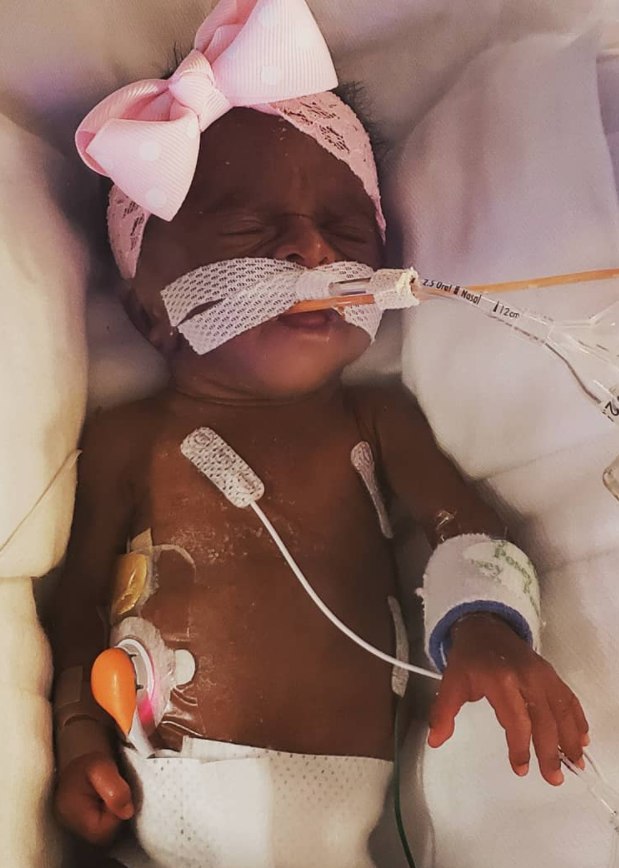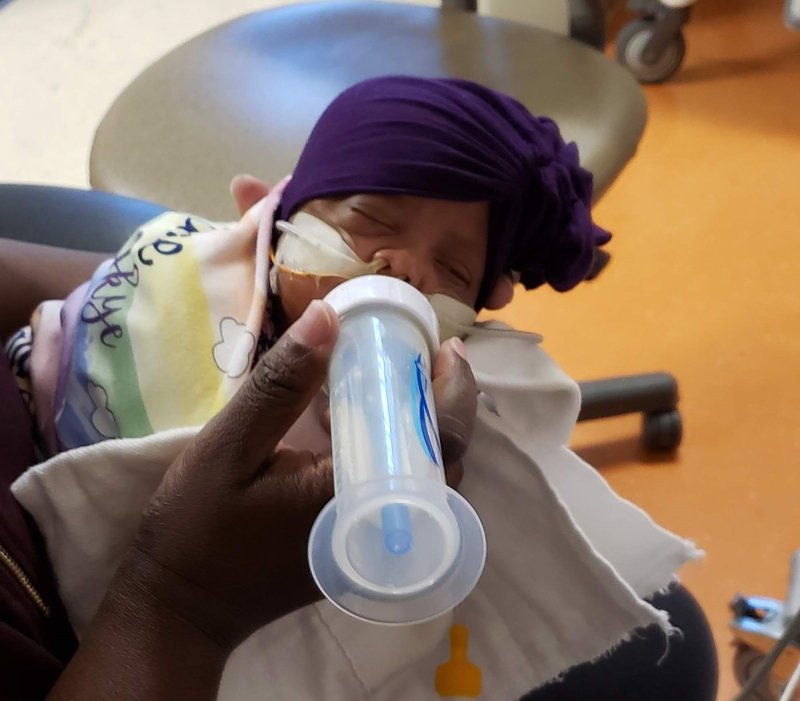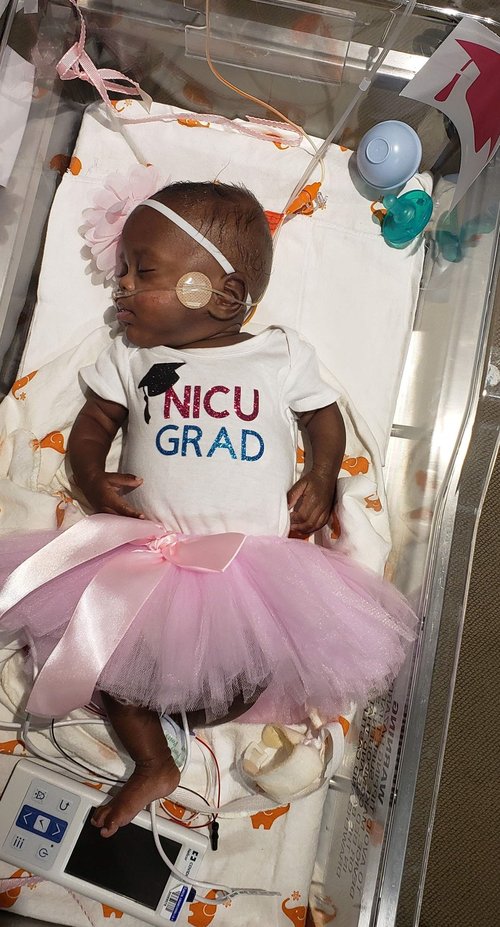Parent Stories
The story of Kallie, as told by her mom, Ebonie
My pregnancy with Kallie was identified as high risk early due to my high blood pressure. My obstetrician proactively managed it and placed me on medication. I didn't gain weight during the pregnancy, as a matter of fact, I lost weight. However, the doctor did not seem too concerned since I was a little overweight to begin with. On May 20, at just 24 weeks and 3 days into my pregnancy, the ultrasound technician noticed several things that were a cause for major concern:
- I lost most of my amniotic fluid
- Kallie was the size of a 21-week-gestation baby even though I was over 24 weeks along
- Blood flow between the placenta to the umbilical cord to Kallie was absent end-diastolic flow
That same day, I was sent to a hospital 40 minutes away and put on bed rest so doctors could closely monitor the blood flow from my placenta and to ensure Kallie stayed inside as a long as possible. At 25 weeks, during a routine umbilical cord ultrasound, the doctors saw that the blood flow to my placenta had started to reverse. It was time for Kallie to be delivered. She was born at 25 weeks gestation via emergency c-section on May 24. She weighed 370 g (13.1 oz) and was whisked away to the hospital's level III neonatal intensive care unit (NICU).

Almost 6 hours after delivery, after most of the medications had worn off, I was wheeled over in my hospital bed to see Kallie for the first time. I had so many feelings and emotions going through my mind at first sight of her. She was smaller than any other baby I had ever seen. I was scared, but I knew she was here for a reason and was ready to fight.
The days in the NICU were long, anxiety was high, and each milestone felt like they took forever to reach. But overall, I would say our NICU experience was good. Kallie needed several blood transfusions, she had one or two bouts of low white blood cell count, and she underwent patent ductus arteriosus (PDA) ligation surgery at 4 weeks old. Our biggest hurdle was oxygen. Kallie was intubated for 8 weeks, and after extubating, she required various forms of ventilation support during her 150-day NICU journey.
Providing breastmilk in the NICU
I started pumping the day Kallie was born and kept pumping every 3 hours. I had ample supply and packed the NICU freezer. Her very first taste of my breastmilk was on a swab through what I learned was called "oral care." Feeding has proven to be our biggest challenge during and after NICU life.

Fortifying my breastmilk
I heard about Prolact+ H2MF from Kallie's neonatologist. She mentioned that Prolacta’s fortifier is made from 100% human milk and it would be added to my breastmilk so that Kallie would get the additional calories she needed to grow and gain weight. Kallie’s first time having Prolacta fortifiers was around 31 weeks gestation for a little less than a month. At the start, she weighed 880 g and one month later she weighed 1435 g, a weight increase of 555 g. The month before getting Prolacta fortifiers, Kallie's weight went from 620 g to 880 g, a weight increase of only 260 g. Looking back, Prolacta fortifiers gave her a great boost and helped her gain more than double the weight she gained the month before. Kallie was extubated 9 days after starting on Prolacta fortifiers.

NICU graduation
Kallie graduated from the NICU at 150 days, just shy of 5 months. She weighed 7 lb 4 oz. She came home with a nasogastric (NG) tube and nasal canula for oxygen support, but all her other milestones were met. Kallie was recognized as one of the smallest babies to ever be cared for at her NICU and made national news.
Advice for parents in the NICU
No matter how long your stay is in the NICU, it’s a hard place to be, but there are so many resources to help you get through it. Join a Facebook group for NICU parents and attend NICU events put on by your hospital. Surrounding yourself with people who are currently in the NICU or who have graduated is the best soup for your soul. They are the ones who will understand your heartaches, pains, and joys. NICU parents celebrate EVERYTHING from moving up in diaper sizes to gaining an OUNCE. Always ask questions and advocate for your baby! And since no two journeys are the same, never ever compare. I hold a special place in my heart for NICU parents.
